Peugeot 3008 VS VW ID. Buzz Cargo – Specs, Efficiency & Price Comparison
Which model is the better choice – the Peugeot 3008 or the VW ID. Buzz Cargo? We compare performance (231 HP vs 340 HP), boot capacity (520 L vs ), efficiency (16.80 kWh0.90 L vs 19.20 kWh), and of course, the price (34400 £ vs 43600 £).
Find out now which car fits your needs better!
The Peugeot 3008 (SUV) is powered by a Plugin Hybrid, Electric or Petrol MHEV engine and comes with a Automatic transmission. In comparison, the VW ID. Buzz Cargo (Cargo Van) features a Electric engine and a Automatic gearbox.
When it comes to boot capacity, the Peugeot 3008 offers 520 L, while the VW ID. Buzz Cargo provides – depending on what matters most to you. If you’re looking for more power, you’ll need to decide whether the 231 HP of the Peugeot 3008 or the 340 HP of the VW ID. Buzz Cargo suits your needs better.
There are also differences in efficiency: 16.80 kWh0.90 L vs 19.20 kWh. In terms of price, the Peugeot 3008 starts at 34400 £, while the VW ID. Buzz Cargo is available from 43600 £.
Compare all the key specs now and find out which model fits your lifestyle best!
Peugeot 3008
The Peugeot 3008 is a compact SUV that seamlessly combines sleek design with modern functionality. Its interior offers a sophisticated and comfortable driving experience, characterised by high-quality materials and innovative technology features. With its dynamic performance and stylish aesthetics, the 3008 stands out in the competitive world of family SUVs.
details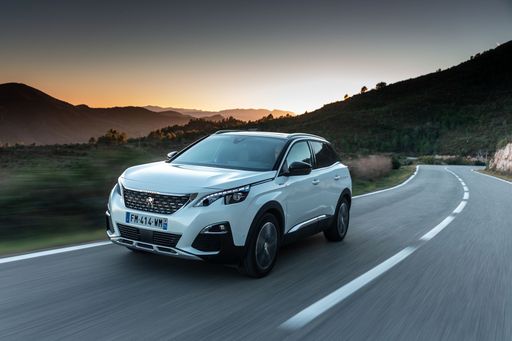 @ media.stellantis.com
@ media.stellantis.com
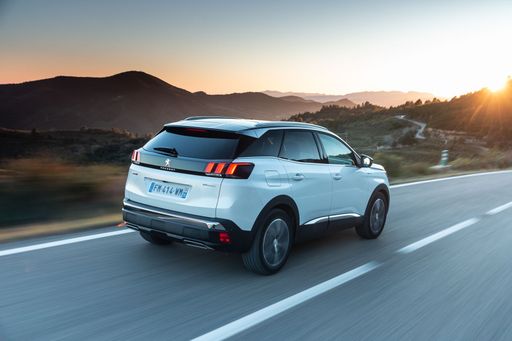 @ media.stellantis.com
@ media.stellantis.com
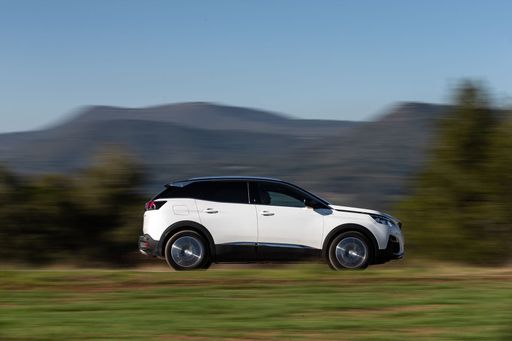 @ media.stellantis.com
@ media.stellantis.com
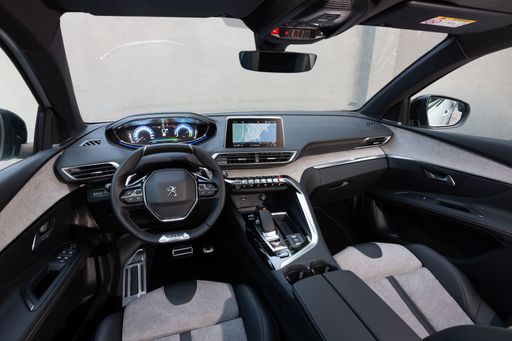 @ media.stellantis.com
@ media.stellantis.com
VW ID. Buzz Cargo
The VW ID. Buzz Transporter represents a bold leap into the future with its innovative electric design and retro-inspired aesthetic. Combining practicality with modern technology, it offers a spacious interior and advanced connectivity features ideal for both urban and long-distance journeys. This vehicle stands as a testament to Volkswagen's commitment to sustainability and forward-thinking mobility solutions.
details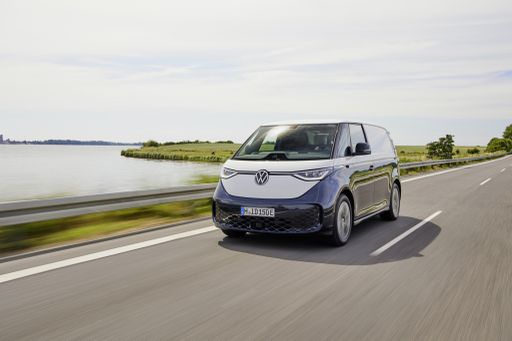 @ volkswagen-newsroom.com
@ volkswagen-newsroom.com
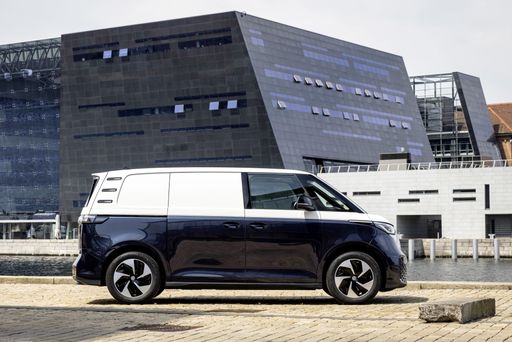 @ volkswagen-newsroom.com
@ volkswagen-newsroom.com
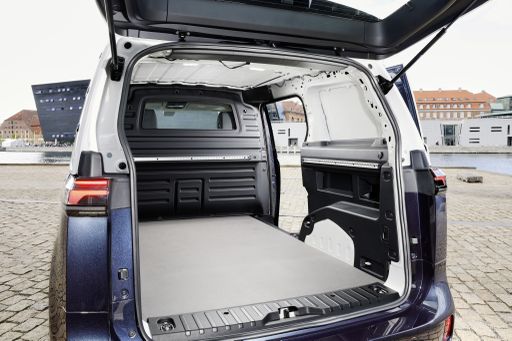 @ volkswagen-newsroom.com
@ volkswagen-newsroom.com

|

|
|
|
|
Costs and Consumption |
|
|---|---|
|
Price
34400 - 49000 £
|
Price
43600 - 51400 £
|
|
Consumption L/100km
0.9 - 5.5 L
|
Consumption L/100km
-
|
|
Consumption kWh/100km
16.8 - 17.2 kWh
|
Consumption kWh/100km
19.2 - 20.3 kWh
|
|
Electric Range
85 - 698 km
|
Electric Range
330 - 455 km
|
|
Battery Capacity
0.4 - 96.9 kWh
|
Battery Capacity
59 - 79 kWh
|
|
co2
0 - 123 g/km
|
co2
0 g/km
|
|
Fuel tank capacity
55 L
|
Fuel tank capacity
-
|
Dimensions and Body |
|
|---|---|
|
Body Type
SUV
|
Body Type
Cargo Van
|
|
Seats
5
|
Seats
3
|
|
Doors
5
|
Doors
4
|
|
Curb weight
1648 - 2183 kg
|
Curb weight
2264 - 2510 kg
|
|
Trunk capacity
520 L
|
Trunk capacity
-
|
|
Length
4542 mm
|
Length
4712 mm
|
|
Width
1895 mm
|
Width
1985 mm
|
|
Height
1641 mm
|
Height
1932 mm
|
|
Payload
432 - 457 kg
|
Payload
640 - 753 kg
|
Engine and Performance |
|
|---|---|
|
Engine Type
Plugin Hybrid, Electric, Petrol MHEV
|
Engine Type
Electric
|
|
Transmission
Automatic
|
Transmission
Automatic
|
|
Transmission Detail
Automat. Schaltgetriebe (Doppelkupplung)
|
Transmission Detail
-
|
|
Drive Type
Front-Wheel Drive
|
Drive Type
Rear-Wheel Drive, All-Wheel Drive
|
|
Power HP
145 - 231 HP
|
Power HP
170 - 340 HP
|
|
Acceleration 0-100km/h
8.4 - 10.2 s
|
Acceleration 0-100km/h
-
|
|
Max Speed
170 - 220 km/h
|
Max Speed
145 - 160 km/h
|
|
Torque
230 - 345 Nm
|
Torque
310 - 679 Nm
|
|
Number of Cylinders
3 - 4
|
Number of Cylinders
-
|
|
Power kW
107 - 170 kW
|
Power kW
125 - 250 kW
|
|
Engine capacity
1199 - 1598 cm3
|
Engine capacity
-
|
General |
|
|---|---|
|
Model Year
2024 - 2025
|
Model Year
2024
|
|
CO2 Efficiency Class
B, A, D
|
CO2 Efficiency Class
A
|
|
Brand
Peugeot
|
Brand
VW
|
Peugeot 3008
Introduction to the Peugeot 3008
In the rapidly evolving world of SUVs, the Peugeot 3008 stands out as a prime example of innovative design and advanced technology. Offering a range of powertrains from hybrid to fully electric, the 3008 is tailored to meet the needs of eco-conscious drivers without sacrificing performance or luxury.
Powertrain Options and Performance
The Peugeot 3008 is designed to cater to a variety of driving preferences with its versatile range of powertrains. The options include petrol mild-hybrid, plug-in hybrid, and full electric variants. The power output ranges from a modest 136 PS to a robust 210 PS, providing a performance spectrum to suit both city commuters and long-distance travellers. Notably, the plug-in hybrid variant boasts an impressive electric range of up to 85 km, while the electric version can travel up to 524 km on a single charge, making it ideal for both urban and rural settings.
Driving Dynamics and Efficiency
The 3008's driving dynamics are refined and engaging, supported by its front-wheel-drive configuration and automatic transmission. Depending on the model, the vehicle can accelerate from 0 to 100 km/h in as little as 8.4 seconds, while maintaining an efficient fuel consumption rate of as low as 0.9 L/100km for the plug-in hybrid variant. For the eco-conscious drivers, the electric model offers a consumption rate of 17.7 kWh/100km, and its CO2 emissions range from 0 to 129 g/km, reflecting its commitment to reducing environmental impact.
Design and Comfort
The Peugeot 3008 boasts a modern and sophisticated design that embodies both elegance and functionality. Its expansive interior offers seating for five, complemented by a generous boot capacity of 520 litres. The vehicle's dimensions—4,542 mm in length, 1,895 mm in width, and 1,641 mm in height—ensure ample space and a commanding presence on the road. Additionally, the 3008's array of equipment lines like Allure and GT enhance the driving experience with premium features and luxurious touches.
Innovations and Technology
The Peugeot 3008 is equipped with a suite of cutting-edge technological features designed to enhance the driving experience. The intuitive infotainment system is central to the vehicle's interior, offering seamless connectivity and navigation options. Safety and driver assistance technologies are also prominent, including advanced systems for collision avoidance and parking assistance, ensuring peace of mind on every journey.
Conclusion
In summary, the Peugeot 3008 is a compelling choice for those seeking a versatile and modern SUV. With a range of efficient powertrains, dynamic performance, and luxurious design elements, it caters to a broad spectrum of drivers. Its advanced technological features and commitment to sustainability make the Peugeot 3008 a forward-thinking option in today's automotive landscape.
VW ID. Buzz Cargo
Reimagining the Classic: The VW ID. Buzz Transporter
The automotive industry has recently been inundated with a range of electric vehicles (EVs), but few can claim a lineage as iconic as the Volkswagen ID. Buzz Cargo. A modern-day reimagining of the classic VW Microbus, the ID. Buzz Transporter seamlessly blends nostalgia with cutting-edge technology and sustainable performance.
Power Meets Precision: Performance and Efficiency
Available in multiple configurations, the ID. Buzz Transporter offers both rear-wheel drive and all-wheel drive options. The base model features an impressive 286 horsepower and a respectable electric range of 461 km, thanks to its 19.2 kWh consumption per 100 km. For those who crave more power, the all-wheel-drive model ups the ante with a thrilling 340 horsepower and a range of 432 km, facilitated by its slightly higher 20.3 kWh/100 km consumption.
Both versions rely on an efficient reduction gearbox, ensuring a smooth and automatic driving experience. The rear-wheel-drive's entry-level model provides a more accessible point for EV enthusiasts with 170 horsepower and an overall easier handling package.
The Heart of an Electric Revolution: Battery and Range
Power comes from robust battery configurations that reflect VW's commitment to sustainable performance. The ID. Buzz Transporter boasts a 79 kWh battery in its higher-end models, allowing expansive commutes or work-related travels. Meanwhile, the 59 kWh option offers a reduced footprint, without substantially compromising on performance, to align perfectly with its more entry-level 170 HP variant.
Functional Innovation: Design and Practicality
While the exterior design pays homage to its retro predecessor, the four-door ID. Buzz is all about embracing modern interior design. The cargo van accommodates up to three seats, making it not only a style statement but a practical choice for businesses needing a workhorse with a zero-emission output.
Weighing in at a curb weight range from 2264 kg to 2510 kg, depending on the model chosen, the vehicle is a testament to Volkswagen's focus on durability and reliability. Despite its weight, the ID. Buzz delivers a payload ranging from 640 kg to 753 kg, maintaining crucial cargo efficiency.
Sustainability Meets Technology: Features and Future Outlook
Volkswagen intentionally integrated forward-thinking technology into the ID. Buzz, emphasizing zero emissions with a CO2 rating of 0 g/km and maintaining an A-grade CO2 efficiency class. These advancements, paired with a maximum speed of 160 km/h and an impressive torque (ranging from 310 Nm to 679 Nm based on the selected variant), set a new standard for electric utility vehicles.
Conclusion: A Symbol of Tomorrow, Today
The ID. Buzz Transporter signifies VW's earnest step into the future while paying homage to its rich heritage. Priced between €50,825 and €59,922, the vehicle caters to a range of consumers looking for a versatile and eco-friendly solution without sacrificing quality or style. With its innovative engineering and nostalgic charm, the ID. Buzz Transporter is poised to capture the imagination of both traditional VW fans and new EV adopters in 2024.
The prices and data displayed are estimates based on German list prices and may vary by country. This information is not legally binding.
